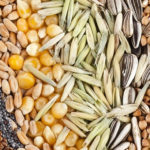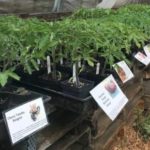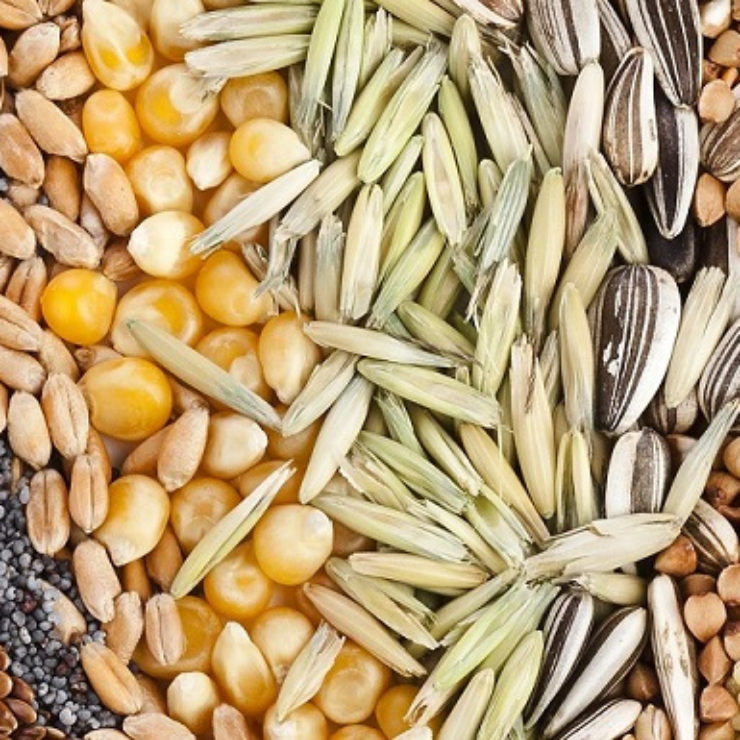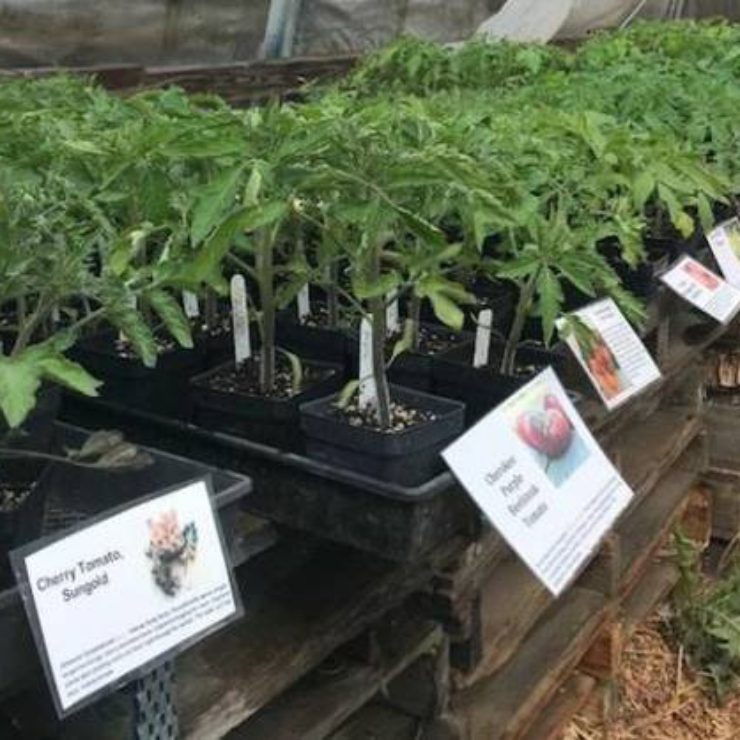Soil is magical. It’s a much revered, complex three-dimensional substance that houses and sustains life. Minimal use of off-farm inputs combined with restorative on-farm management practices that enhance ecological harmony are the backbone of Fiddle Farms’ soil management system. However, we also recognize the our soils are not perfect and we sometimes have to add soil amendments in order for our plants to thrive.


Our Soil Testing
Soil testing provides information on the availability of nutrients in the soil and is required for accurate fertilizer and lime recommendations. If you are interested in soil science, please take a look at our 2016 Soil Test and 2018 Soil Test Results and 2020 Soil Test Results. You can also check out the graphs from the last 7+ years Based on our tests, we have decided to amend our soils with the following vegan substances:
- Organic Soybean Meal 8-0-1
Soybean meal is high in nitrogen for a vegan and organic soil amendment and is a naturally slow release fertilizer. The meal is rich in protein which allows the microorganisms to cleave the protein molecules into amino acids then tear apart the amino acids to create ammonium ions and nitrate ions. Nitrogen is supplied as ammonium nitrate ions which are the two forms of nitrogen palatable to plants. - Organic Kelp Meal 1-0-3
Kelp has over 70 beneficial vitamins and minerals which revitalizes our soil and gives our plants all the potassium they need to really grow. Kelp has a cellulose structure that filters sea water and stores nutrients. This constant filtration of minerals allows the plant to grow at incredible speeds, sometimes at rates of up to 3 feet a day. This makes kelp an abundant, renewable resource. - Organic Alfalfa Meal 3-1-2
Alfalfa Meal is an all natural fertilizer made from fermented alfalfa plants. It can help restore soil’s biology and bring back its full growing potential. With a unique 3-1-2 ratio, Alfalfa Meal is an all natural, organic fertilizer that replenishes sugar, starches and proteins that help keep our plants growing healthy and strong. - Organic Calphos, Soft Rock Phosphate 0-3-0
Calphos is a natural, untreated soft phosphate with colloidal clay containing valuable minor minerals in addition to phosphorus. Calphos contains no harmful acids and encourages growth of soil bacteria and earthworms. - Neem Cake (Azadirachta indica). New: Adding new for the 2018 season
Neem cake is a medium sized and drought tolerant evergreen tree endemic to
south Asia. Ancient Indian text reference neem as Sarva Roga Nivarini, “the curer of all ailments” due to its many and diverse uses. Every part of the Neem tree –the bark, leaves, flowers, seeds – has a use. Neem will likely play a large role in sustainable farming practices globally as producers are beginning to
recognize its potential as a bio-degradable, non-toxic, and effective alternative to agro-chemicals. - Karanja Cake (Pongamia pinnata) 4.5-.5-1.25. New: Adding new for the 2018 season
Pongamia pinnata is a medium sized tree popularly known as Karanja in Hindi, Indian beech in English, and Pongam in Tamil. The tree is highly valuable for its oil content (seeds contain between 27-39% oil) and is being explored for its potential use as a renewable bio-fuel.9 Historically, karanja has been used in India and neighboring regions as a source of traditional medicines, animal fodder, green
manure, timber, fish poison, and fuel. Karanja seed is rich in protein and nitrogen and work well as a plant based, non-toxic, and effective “green manure” or organic fertilizer. When used in combination with neem, karanja has been shown to be 70 times more effective in both oil and cake forms. Studies show that karanja contains phyto-chemicals which inhibit the growth of pathogenic microbes that cause diseases in plants. - Ground Oyster Shells
A high quality soil conditioner which consists of 96% calcium carbonate and many micro-nutrients, Oyster Shell provides a long-lasting, steady release of nutrients to help regulate pH levels, improve fertilizer uptake, promote healthy cellular structure and enhance soil tilth. Oyster Shell is also helpful in creating more active habitats for soil microbes. - Worm Castings
As worms digest organic materials, the nutrients, including minerals and trace elements, are reduced to their most usable form. Castings contain about 4% to 5% more nitrogen than your average garden soil, but in a slow release form due to the mucous the worms secrete as they digest. Worm castings also make soil more absorbent, making moisture more consistently available to plants and preventing soil from completely drying out. Worms introduce uncountable numbers of beneficial microbes and bacteria into the finished product, guaranteeing the healthiest soil possible. In addition, castings contain humic acid which aids plant nutrient absorption. Here’s a link to the lab report for the worm castings: logan-labs-report_worm-castings. Notice the incredible amount of Phosphorus (P) which is difficult for us to get from since we don’t use bone meal or bat guano. - Micro-amounts of Borax (for Boron), Manganese Sulfate, and Zinc Sulfate
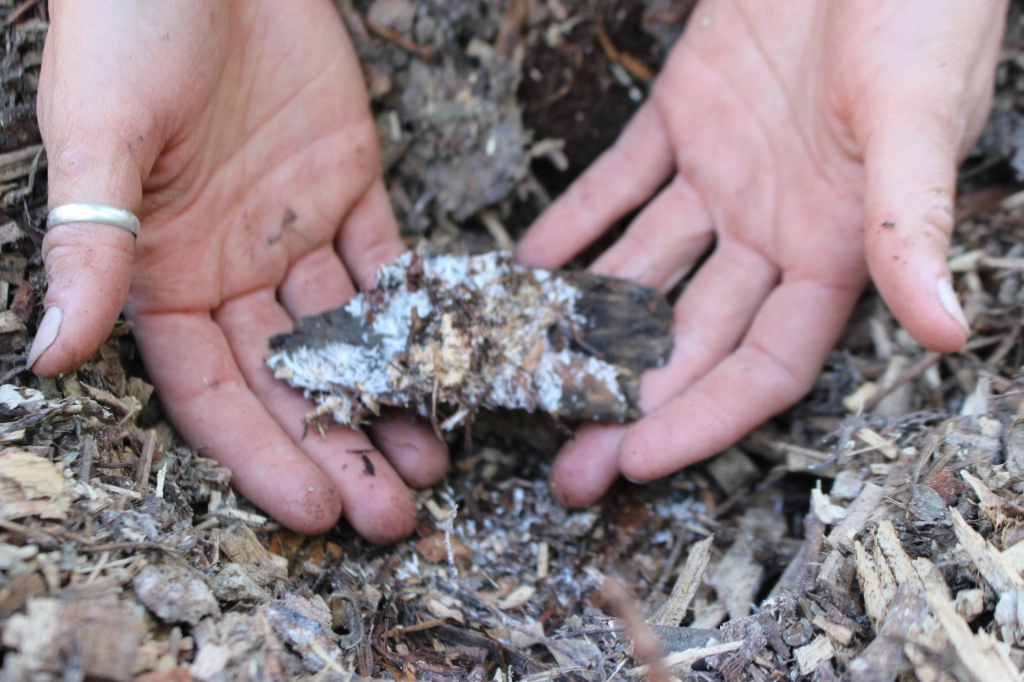
Vesicular-Arbuscular Mycorrhizas (aka. Endomycorrhizas)
Mycorrhizal fungi colonize plant roots and extend far into the soil. Mycorrhizal fungal filaments in the soil are truly extensions of root systems and are more effective in nutrient and water absorption than the roots themselves. More than 90 percent of plant species in natural areas form a symbiotic relationship with the beneficial mycorrhizal fungi. Mycorrhizal fungi increase nutrient uptake not only by increasing the surface absorbing area of the roots, but also release powerful enzymes into the soil that dissolve hard-to-capture nutrients, such as organic nitrogen, phosphorus, iron and other “tightly bound” soil nutrients.


